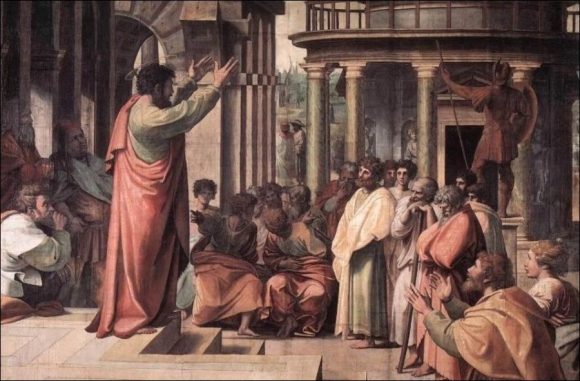The dialogue, written by the Greek philosopher Plato, on Socrates’ accusation by a group of Athenians for disbelief in the gods of the city and the deprivation of the morality of the youth, the trial and punishment of the democracy of Athens, is the continuation of the dialogue called Euthyphron. This work forms a trilogy with Euthyphron and Kriton. Euthyphron tells the court just before the defense, the Defense court process, and Kriton after the court.
In the work written by the Greek philosopher Plato, Socrates is accused by some people. However, it is not known exactly who the accusers are; but it is thought that Meletos was the leading one. Aristophanes, the famous comedy writer, accepted Socrates as the Sophists. Accusations have emerged as Socrates is a bad, lying person, involved in everything, and shows the curve as true.
Aristophenes writes that Socrates teaches the students in exchange for money and confuses the students. Yet Socrates has no knowledge to give to anyone. One day, a friend of Socrates asked the public if there was anyone more knowledgeable than Socrates. The spokesman of God said that there was no one more knowledgeable than Socrates. After all, Socrates kept thinking about why God said so even though he was not a knowledgeable person. He always looks for someone more knowledgeable than himself. In the end he sees that no one is knowledgeable. Only his privilege is that he knows that he is not knowledgeable.
Socrates has gained many enemies in the process of searching for more information. Because it has revealed that many people are actually ignorant. First, the defense of Socrates revealed the ignorance of his men. Then he went to the poets and showed that they wrote their poems solely by instinct. It has proved that the owners of art carry the same defect and refer to things they do not know. Socrates, in fact, thinks that it is God who has the real knowledge.
In this process, Socrates did not realize what was happening around him while he was searching for answers to his questions. Many people around him say that he has separated the young from the right path and replaced the gods with new gods. These rumors lead him to court. Socrates is not because he is accused of being a god, but because of his hatred. In the face of these developments, Socrates is very calm. He doesn’t care about dying or being sentenced, he’s just after the truth. It is his principle not to be afraid or to be afraid in the face of danger. According to him, death, which is what people fear most, is not something to be avoided. He’s just afraid of doing evil.
Socrates is determined not to abandon his ideals. He will never submit to anyone except God. The slanders thrown on him are always unfounded. Socrates has no permanent students and no property. He is a wise man who does not care about world life. He never brings his family and children to court to soften the judges. Karan leaves it to God, who is completely in the hands of the judges.
Socrates is considered guilty by the court. He expects it and hardly reacts. He is a different person than anyone. He gave no importance to authority, position, world life like the general of people so that he is saddened, he always advised people, morality and virtue. Such a person should only be rewarded for working on account of the defense of Socrates. The court does not impose a fine; because he has no money. Does not exile; because it will direct the people in exile. Finally, the death penalty is imposed. 0, despite the death penalty, did not cry and whine like others. He doesn’t regret anything he did. According to Plato, those who voted for the murder of Socrates will suffer. Those who vote for their salvation are real judges.
According to Socrates, death is not a punishment. It’s just a journey. There is also no danger of being convicted in the other world for asking questions. Socrates wishes one last thing from the Athenians: if their children depart from virtue and righteousness, let them guide them as he showed them. Their children value themselves and ask the Athenians to scold them if they forget they are nothing in this world.
Socrates goes to death during the execution while the judges go to life. But according to Plato, only God knows which of these is more beautiful and true.
Visits: 152



